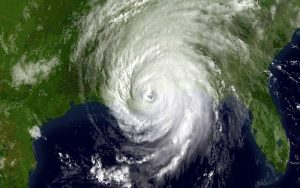Hurricane Preparedness
A hurricane is a storm system rotating around an area of low pressure which produces strong winds and heavy rain. Hurricanes produce winds of 74 miles per hour or higher. A hurricane forms in the southern Atlantic Ocean, Caribbean Sea, Gulf of Mexico, and in the eastern Pacific Ocean. A typical cyclone is accompanied by thunderstorms, and in the Northern Hemisphere, a counterclockwise circulation of winds near the earth’s surface.
Hurricanes can cause catastrophic damage to coastlines and several hundred miles inland. Hurricanes can produce tornadoes and microbursts. Additionally, hurricanes can create storm surges along the coast and cause extensive damage from heavy rainfall. Be prepared – check out the Miami-Dade County Hurricane Guide.
All Atlantic and Gulf of Mexico coastal areas are subject to hurricanes. Parts of the Southwest United States and the Pacific Coast also experience heavy rains and floods each year from hurricanes spawned off Mexico. The Atlantic hurricane season lasts from June 1 to November 30, with the peak season from mid-August to late October.
It only takes one storm to threaten, cause damage, and disrupt our lives. A hurricane will not occur without warning, so in the off-season it is important to be educated, develop a plan, and ensure that you are adequately prepared.
Frequently Asked Questions (FAQs)
1. What is the difference between a tropical storm and a hurricane?
Wind speed. Tropical storms have sustained wind speeds of 39-73 mph.
2. Are we in danger?
Hurricanes can be very destructive. However, if you are in a safe area and inside a safe house, building, or hurricane shelter, you probably won’t have any problems. However, you may be without electricity or water for a few hours or days.
3. What can we expect?
- High winds
- Lots of rain
- Some flooding
- Some or all of the above
4. What do I need?
- Water
- Canned foods/snacks
- Batteries
- Flashlights
- Portable radio
- Any medication you might need
- Gas for your car
- Cash (small bills preferable)
Hurricane Preparedness with Roary
Be Prepared |
|
Stay Informed |
|
 Website: https://www.fiu.edu/
Website: https://www.fiu.edu/
Facebook: https://www.facebook.com/floridainternational
Instagram: https://www.instagram.com/fiuinstagram/
Twitter: https://twitter.com/fiu
FIU Department of Emergency Management website:
https://dem.fiu.edu/emergencies/hurricanes
Miami-Dade County’s Hurricane guide:
https://www8.miamidade.gov/gl…/emergency/hurricane/home.page

Website: https://eli.fiu.edu/
Facebook: https://www.facebook.com/FIUELI
Instagram: https://www.instagram.com/fiueli/
Twitter: https://twitter.com/FIUELI
Phone: +1 305-348-2222

